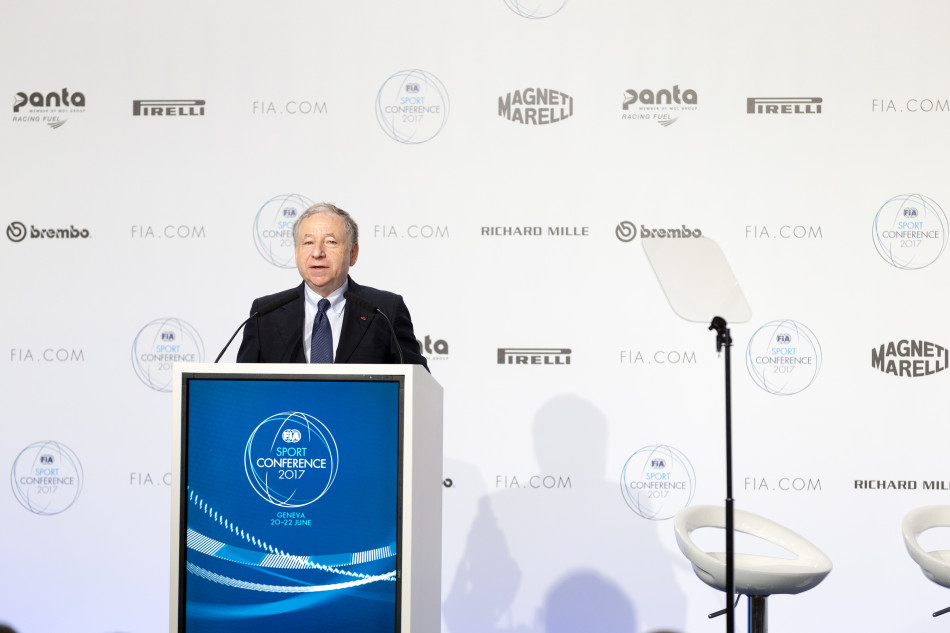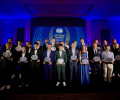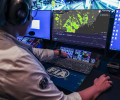Forging new pathways
FIA President Jean Todt opens Sport Conference 2017, saying Motor Sport is a “catalyst for progress"

PLEASE CLICK HERE TO FIND THE ALBUM OF THE FIRST DAY OF THE 2016 FIA SPORT CONFERENCE.
FIA President Jean Todt yesterday formally opened the fifth edition of FIA Sport Conference, saying the progress made in motor sport in recent years has provided a strong platform for future innovation, on track and on the road.
After welcoming delegates from 111 ASNs/ACNs to the three-day event in Geneva, the FIA President said: “The world is changing with unprecedented speed. Motor sport is confronted with new sets of values and an increased desire for respect and preservation of the resources of our planet, new developments such as autonomous driving and a strong demand for e-mobility.
“Sport is a catalyst for progress. The technical formulas we have defined and implemented in our world championships, such as Formula One or Endurance, are reaching maturity,” he said. “I am convinced that today’s progress in these disciplines will open the door to the innovations we will find in hybrid vehicles in the next few decades and Formula E is paving the way towards electric mobility in our cities and beyond.”
President Todt also pointed to the changing nature of engagement with motor sport, adding that the sport must involve fans in a broader experience in order to meet modern demands.
“The direction of many sporting events is that they become entertainment events, with not only sport as a focus but also music, culture and new ways of sports presentation that enrich the fan experience and go far beyond traditional racing.”
“We are working very closely together [with the new commercial rights holder in F1] in an open and friendly way, with clearly defined common goals to improve the quality and the attractiveness of the FIA Formula One World Championship, to carefully manage costs and development, and at the same time to secure innovation as a very important factor of distinction.”
In Formula E, the FIA President pointed to the developments made in technology within the championship and the ambition of the 2017- ’18 calendar, which features new events in Santiago, Sao Paulo and Rome. “New manufacturers are lining up to join this championship,” he said. “The impact of this exposure to millions of potential new fans will be fantastic, and the desire of the cities and manufacturers to be involved shows how much of a success Formula E has been over its first three seasons.”
Looking back at the first five editions of the Sport Conference, FIA Deputy President for Sport Graham Stoker highlighted the progress made by the FIA in the time of the event’s existence, including recognition by the IOC in 2013, which he said proved the Federation’s role is “not simply in governance; we’re in sport development, we’re in social responsibility, we’re in pathways of developing sport.” He also referenced the growing potency of motor sport regions such as South America and Asia, demonstrated at the 2015 conference in Mexico, and the growth in social responsibility of the sport, highlighted at last year’s conference in Turin.
He added, however, that questions still remain: “We want safety but we want exciting sport. We want drivers but we want teams and manufacturers. We’ve got technology but we want to see action on the track. We need to enjoy our sport but it also has to be sustainable and relevant.
“Conferences such as this lead to a situation where we can start to answer these questions and I think we have strong answers to them,” he said. “For the first time, all the major promoters are represented here and there is a new will of co-operation in our sport among promoters, the industry and the governing body and if we have that, together with our ASNs, we are very powerful and we can move forward and be confident in the next decade.”
Finally, Mr Todt also paid tribute to John Hughes, the former President of the FIA Historic Motor Sport Commission who passed away recently.

 Facebook
Facebook Twitter
Twitter






